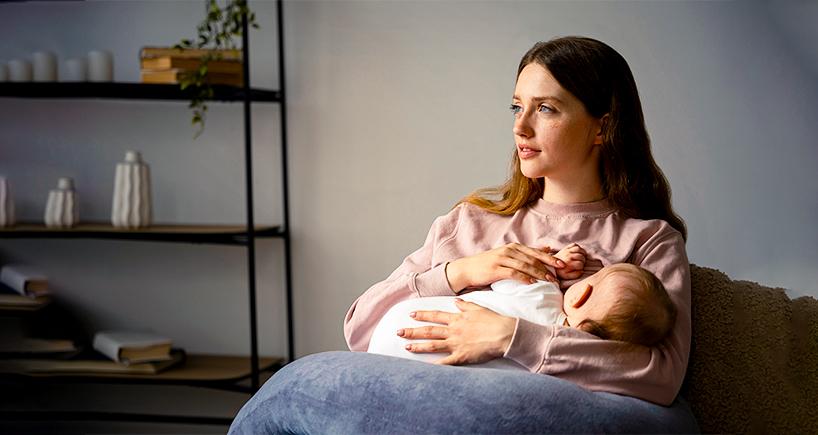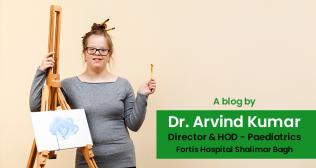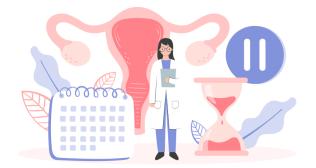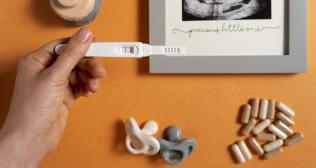
Postpartum depression (PPD): Symptoms and causes
Postpartum depression (PPD) is a type of depression that happens after giving birth . It affects up to
15% of women . People with postpartum depression experience emotional highs and lows, frequent
crying, fatigue, guilt, anxiety and may have trouble caring for their baby. People experience
hormonal, physical, emotional, monetary and social changes after having a baby. These changes can
cause symptoms of postpartum depression. Postpartum depression can be treated with medication
and counseling.
A new mother may be heard saying “ I’m happy to be a new mom. But why am I feeling so sad?”
Whether it’s your first or third, the birth of a baby can initiate a bag of powerful emotions, from
excitement and joy to fear and anxiety. Many of these emotions are caused by physical changes
including changes in hormones, and lack of sleep and a change in diet and physical activity.
There are three different types of postpartum mood disorders:
POSTPARTUM BLUES OR BABY BLUES
The baby blues affect between 50% and 75% of people after delivery. The condition usually begins in
the first week (one to four days) after delivery. Symptoms commonly include mood swings, crying
spells, reduced concentration, irritability and sadness. Baby blues typically begin within the first two
to three days after delivery and may last for up to two weeks.
POST PARTUM DEPRESSION
Postpartum depression is a far more serious condition than the baby blues, affecting about 1 in 7
new parents. You may experience alternating highs and lows, frequent crying, irritability and
fatigue, as well as feelings of guilt, anxiety and inability to care for your baby or yourself. Although
symptoms can last several months, treatment with psychotherapy or antidepressants is very
effective.
POST PARTUM PSYCHOSIS
Postpartum psychosis is an extremely severe form of postpartum depression and requires
emergency medical attention. This condition is rare, affecting only 1 in 1,000 people after delivery.
Symptoms include severe agitation, confusion, feelings of hopelessness and shame, insomnia,
paranoia, delusions or hallucinations, hyperactivity, rapid speech or mania.It requires immediate
medical attention since there is an increased risk of suicide and risk of harm to the baby. Treatment
will usually include hospitalization, psychotherapy and medication.
SYMPTOMS
• Feeling sad, worthless, hopeless or guilty.
• Worrying excessively or feeling on edge.
• Loss of interest in hobbies or things you once enjoyed.
• Changes in appetite or not eating.
• Loss of energy and motivation.
• Trouble sleeping or wanting to sleep all the time.
• Crying for no reason or excessively.
• Difficulty thinking or focusing.
• Thoughts of suicide or wishing you were dead.
• Lack of interest in your baby or feeling anxious around your baby.
• Thoughts of hurting your baby or feeling like you don't want your baby.
RISK FACTORS
Family history
Limited social support
Marital discord
Pregnancy health complications
Single parent or young maternal age
How is postpartum depression treated?
Postpartum depression is treated differently depending on the type and severity of your symptoms.
Treatment options include anti-anxiety or antidepressant medicines, psychological therapy and
support group participation.
What are ways to cope with postpartum depression?
It's OK to feel overwhelmed. Parenting is full of ups and downs and having a baby isn't easy. If you
have depression, you don't have to suffer alone. Talk to your doctor for help and support
Things to do to cope with postpartum depression:
Find someone to talk to — a therapist, friend, family member or someone who will listen to you and
help you.
Join a support group for new parents.
Try to eat healthily and find time for exercise.
Prioritize rest for yourself.
Go out with friends or talk to them on the phone.
Find time for self-care and doing things you enjoy, like reading or other hobbies.
Get help with household chores or errands.
Prevention
Can postpartum depression be prevented?
Postpartum depression isn't entirely preventable. Sharing some tips that can help prevent
postpartum depression:
Be realistic about your expectations for yourself and your baby.
Ask for help — let others know how they can help you.
Sleep or rest when your baby sleeps.
Exercise — take a walk and get out of the house for a break.
Keep in touch with your family and friends — don't isolate yourself
Expect some good days and some bad days.
Prognosis
With professional help, almost all people who experience postpartum depression can overcome
their symptoms.
CONCLUSION
Postpartum depression is a common mood disorder that affects 1 in 7 people after giving birth. It
doesn't make you a bad parent or a bad person. The biological, physical and chemical factors that
cause PPD are beyond your control.Talk to your healthcare provider if you think you have
postpartum depression. They can figure out how to best manage your symptoms. Counseling,
medication or joining a support group can help. So all you new moms out there , cherub and enjoy
your new found motherhood!












